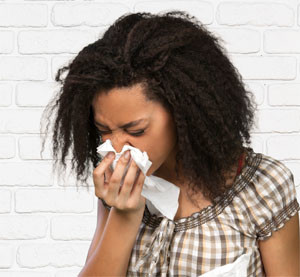 Have you had watery, itchy eyes lately? Do you feel like you have an on-going cold? If the “cold” lasts for more than two weeks, then you likely have allergies. Even though we are in sunny Florida and in the Fall season, allergens still abound.
Have you had watery, itchy eyes lately? Do you feel like you have an on-going cold? If the “cold” lasts for more than two weeks, then you likely have allergies. Even though we are in sunny Florida and in the Fall season, allergens still abound.
The summer seasonal allergies from flowering plants and bushes can last a bit longer down here than in northern states. Since our weather stays warm during autumn, the beautiful blooms remain continuing the pollination that bothers our immune systems. Pollen from flowers and grasses, which is a major cause of allergy symptoms, dies off when it frosts.
In Florida, mold abounds due to the climate and stays here year ‘round. Mold allergies can be caused by both indoor and outdoor mold. Mold never dies. It will go dormant when cold, then return upon warm weather’s return. Mold loves wet, humid areas. The places to look for mold indoors would be a bathroom, kitchen, and laundry room. Outdoors, mold loves to live in wet leaves, compost, and piles of grass. In addition to the average allergy symptoms, mold can also cause the sufferer to experience hives, wheezing, swollen eyelids, and severely itchy eyes.
Ragweed is the most common cause of allergies here in southwest Florida during the Fall season. Ragweed are weeds that grow in most of the states, but mainly in the Midwest and East part of the United States. There are seventeen species of ragweed. They belong to the family that also includes goldenrods, marigolds, sunflowers, sage, and zinnias. Each plant can produce up to one billion pollen grains, which is quite a bit, especially to those who are allergic to the plant.
IPALC.comIf your allergies to plants, grasses, and molds affects your life to the point where you feel sick constantly, don’t suffer for long. Contact a physician for guidance on how to manage your allergies. IPALC.com has a searchable index of doctor’s in the Lee county area of southwest Florida.
Share on Facebook



 Southwest Florida Medicine.com is dedicated to bringing you the very best health information available today!
Subscribe or check back regularly!
Southwest Florida Medicine.com is dedicated to bringing you the very best health information available today!
Subscribe or check back regularly!